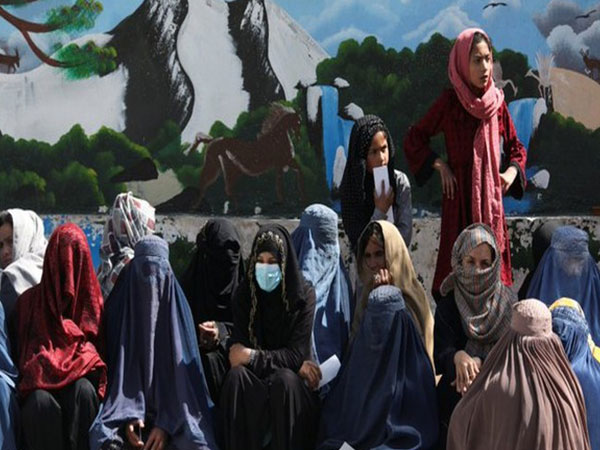
Kabul: Women who became unemployed after the Taliban's decree banning women from working in non-governmental organisations (NGO) have called on the Taliban to remove the restrictions at the earliest, Afghanistan-based Tolo News reported .
These women stressed that providing work opportunities for women is the responsibility of the Taliban. Mashhoda, who worked to support her family financially, said that knowledge and work are the basic right of every person. Mashhoda said, "Most of the family's breadwinners are women in Afghanistan because they don't have brothers and fathers. Instead of depriving women of the right to work, the government should provide them with the opportunity to work," according to Tolo News report. .
Sema, an employee of an organization, urged the Taliban to "cancel the ban on work for girls and women for Eid" and allow the women and girls to participate in the development of Afghanistan as members of society. Meanwhile, the Taliban has said that work is being conducted to allow women to return to work if there is a problem on Sharia.
Taliban spokesperson Zabihullah Mujahid said, "Work is underway in this regard. In the section that does not have any Sharia problem, God willing, the situation will be favourable," according to Tolo News report.
Earlier, Richard Bennett, UN special rapporteur for Afghanistan, said that the Taliban in the past 21 months had issued more than 50 orders against Afghan women and girls. Bennett made the remarks at the 50th meeting of the Human Rights Council. More than six months back, Taliban barred women from working in non-governmental organizations in Afghanistan.
Earlier this month, UNICEF expressed concerns that if international non-governmental organisations working in the field of education are no longer allowed to operate in Afghanistan, it will affect highly affect the education of the children in the war-torn nation, Afghanistan-based Tolo News reported.
Reiterating once again that every child has the right to learn, UNICEF in a statement that Afghanistan could lose out on quality learning through community-based education within a month if international non-governmental organizations working in the field of education are no longer allowed to work.
"As the lead agency for the education cluster in Afghanistan, UNICEF is deeply concerned about reports that over 500,000 children, including over 300,000 girls, could lose out on quality learning through Community Based Education within a month if international non-governmental organizations working in the field of education are no longer allowed to operate and if handovers to national NGOs are done without comprehensive assessment and capacity building," the UNICEF said.
Fazal Saberi, the head of an NGO, expressed fear that if these NGOs stopped operating, Afghan children's access to education would be permanently gone." Suraya Paikan, a women's rights activist, said, "Such suspension of (NGOs) operations will damage the education of Afghanistan and the Afghan children will be vulnerable."
Afghanistan, under the Taliban, is facing its worst humanitarian crisis and the women of the country are denied fundamental rights. According to a World Food Programme assessment, Afghanistan is one of the nations with extreme food insecurity, with nine million people affected by severe economic difficulties and hunger.